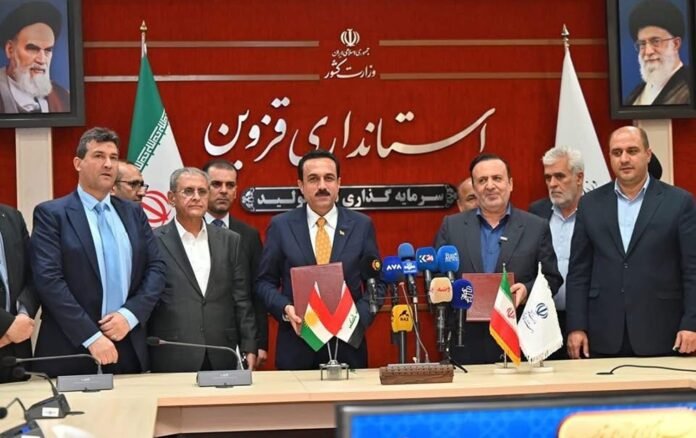The Kurdistan Region and Iran trade agreement was officially signed to boost economic cooperation across shared borders.
Notably, officials from Iraq’s Kurdistan Region and three Iranian provinces finalized the deal during a joint forum in Sanandaj.
Essentially, the agreement was reached following talks between governors from Erbil, Duhok, Halabja, and Sulaymaniyah, as well as their counterparts from Iran’s Kurdistan, Kermanshah, and West Azerbaijan.
Additionally, the new framework aims to streamline customs procedures and eliminate administrative barriers that hinder trade. It also calls for enhanced border management and improvements in shared infrastructure.
During a joint press conference, Erbil Governor praised the agreement. He described it as a “solid step forward” and stressed the Kurdistan Region’s commitment to stronger regional partnerships.
Moreover, He emphasized the need for a structured economic relationship. He stated that both sides are aligned in their desire to develop lasting cooperation based on mutual benefits.
In response, Iranian Kurdistan Province Governor Arash Zarei Tanli Lahouni welcomed the initiative. He called the Kurdistan Region-Iran trade agreement a turning point in cross-border engagement.
According to Lahouni, the deal reflects shared economic interests and rising momentum for deeper collaboration. He noted that both sides will benefit from better logistics and infrastructure planning.
Furthermore, delegates discussed long-term projects to support border commerce. These include transport upgrades, digital customs systems, and joint economic zones to facilitate easier trade.
The agreement also aims to strengthen institutional coordination. Regular meetings between regional officials are planned to monitor progress and resolve challenges swiftly.
As part of the broader strategy, both sides highlighted their commitment to peace, economic stability, and people-to-people ties.
To conclude, the Kurdistan Region-Iran trade agreement marks a strategic milestone in regional integration. It builds a foundation for future growth, investment, and collaboration.

